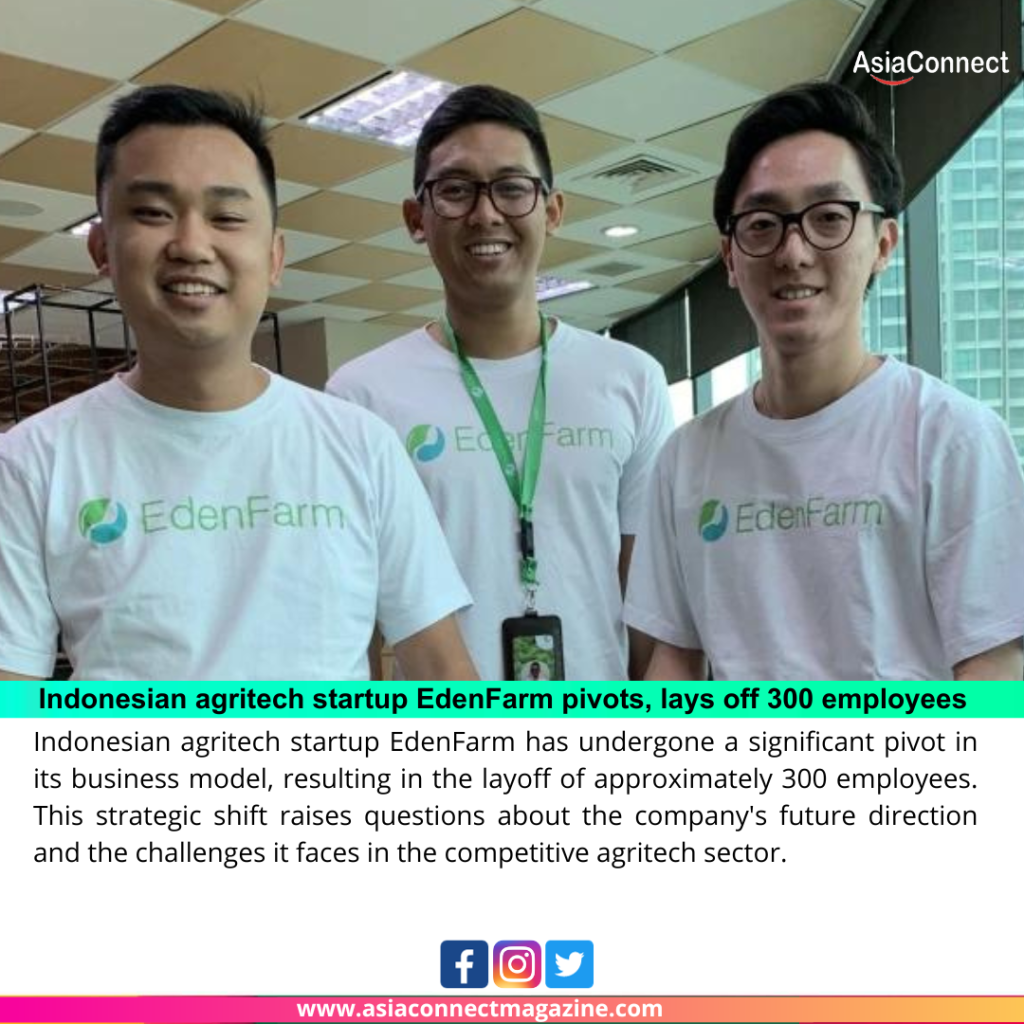
Indonesian agritech startup EdenFarm has undergone a significant pivot in its business model, resulting in the layoff of approximately 300 employees. This strategic shift raises questions about the company’s future direction and the challenges it faces in the competitive agritech sector. Here’s a closer look at the situation:
EdenFarm’s Initial Focus:
EdenFarm, initially founded in [Insert Year], entered the agritech scene with a mission to revolutionize Indonesia’s agricultural supply chain. The company aimed to connect farmers directly with consumers and businesses, eliminating middlemen and ensuring fair prices for farmers’ produce.
Pivot in Business Model:
However, in a recent development, EdenFarm has made a significant pivot in its business model. The company has shifted its focus away from direct-to-consumer (D2C) sales and distribution to concentrate on serving business-to-business (B2B) clients. This shift has resulted in the layoff of around 300 employees, raising concerns about the impact on the workforce and the company’s ability to execute its new strategy effectively.
Reasons for the Pivot:
The pivot in EdenFarm’s business model can be attributed to several factors:
- Competitive Landscape: The Indonesian agritech sector is highly competitive, with numerous startups vying for market share. Adapting to changing market dynamics is crucial for survival.
- Market Demand: The B2B segment of the agritech market in Indonesia may present more significant growth opportunities and scalability compared to D2C operations.
- Supply Chain Efficiency: Focusing on B2B allows EdenFarm to address supply chain inefficiencies in the agricultural sector, potentially benefiting a broader range of stakeholders.
- Business Viability: Startups often need to pivot to remain viable and competitive. EdenFarm’s shift may be an essential step in ensuring its long-term sustainability.
Challenges and Uncertainties:
While the pivot offers potential benefits, it also presents several challenges and uncertainties:
- Employee Impact: The layoffs of approximately 300 employees raise questions about their well-being and potential challenges in finding new employment in a competitive job market.
- Execution Risk: Transitioning to a B2B-focused model requires a different set of capabilities and resources. EdenFarm will need to ensure a seamless transition and deliver value to its B2B clients.
- Market Acceptance: The success of the new strategy depends on how well it is received by B2B clients and whether EdenFarm can establish itself as a trusted partner in the sector.
- Competition: EdenFarm will continue to face competition from both established players and emerging startups in the B2B agritech space.
Future Prospects:
The success of EdenFarm’s pivot will hinge on its ability to effectively serve B2B clients and streamline agricultural supply chains. If executed well, this shift could lead to business growth and sustainability in a rapidly evolving agritech landscape.
Conclusion:
EdenFarm’s pivot from a D2C-focused agritech startup to a B2B-centric model is a strategic move aimed at addressing market challenges and capitalizing on new opportunities. While the layoffs are regrettable, they may be a necessary step in the company’s evolution. The agritech sector in Indonesia is dynamic and competitive, requiring startups to adapt and innovate continually. EdenFarm’s ability to navigate this transition successfully will determine its future prospects in the industry.




